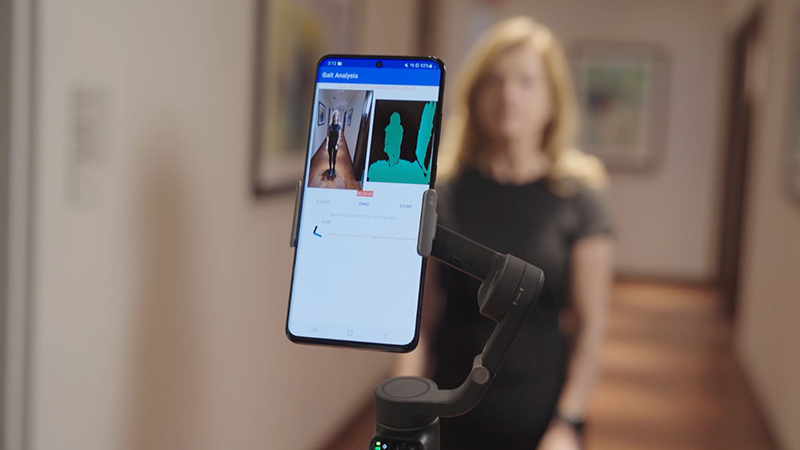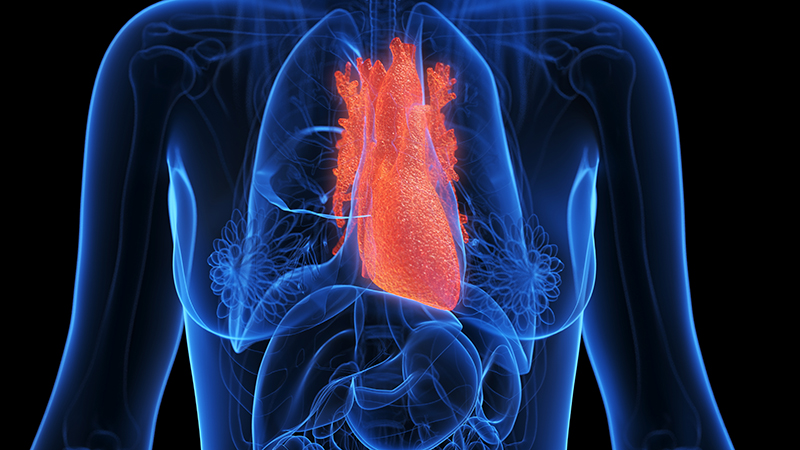Preventing Colorectal Cancer With AI Technology
Artificial Intelligence Helps Enhance Colonoscopy Screenings
Updated June 2023
Patients who come to any Northwestern Medicine location for colonoscopies now have access to advanced artificial intelligence (AI) technology, which is improving the way gastroenterologists detect colon polyps and prevent colorectal cancer. According to new research by Northwestern Medicine, physicians who performed colonoscopies assisted by AI achieved a 13% increase in the detection and removal of colorectal polyps.
Computer-aided colonoscopies could reduce future colon cancer diagnoses by up to 39%.— Rajesh Keswani, MD, MS
“Most polyps do not become cancerous, but nearly all colorectal cancers begin as polyps,” says Rajesh N. Keswani, MD , MS, director of Endoscopy for Northwestern Memorial Hospital and director of quality for the Northwestern Medicine Digestive Health Center. “We want to detect them in their earliest stages and remove them to prevent future diagnoses of cancer. There’s nothing better than telling a patient that their decision to have a screening colonoscopy may have saved their life.”
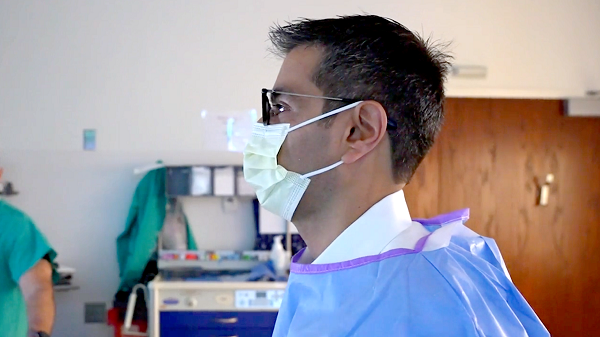
Colorectal cancer is the third most common cancer in the United States. But cases have been steadily dropping over the past two decades due to screenings like colonoscopies.
“Colorectal cancer is often preventable with regular colonoscopies. Artificial intelligence uses robust data to help physicians identify polyps or lesions during colonoscopies, which could lead to better outcomes for patients,” says Michael A. Ruchim, MD, gastroenterologist and associate chief medical officer at Northwestern Memorial Hospital and senior vice president of Northwestern Memorial Foundation. “Looking ahead, this technology could be an important tool in diagnosing and treating our patients with digestive diseases, including colorectal cancer.”
Inside the Research
Previous research has shown that each 1% increase in the colon adenoma (noncancerous colorectal polyp) detection rate was associated with a 3% decrease in the risk of cancer within five years of a colonoscopy. Adenomas are the most common type of colorectal polyp.
Over the six-month study period, 21 gastroenterologists at Northwestern Memorial Hospital performed 4,820 colonoscopies. As with any study, there was a control group of participants and a treatment group. The patients in the control group received a standard colonoscopy. For the patients in the treatment group, nine of the 21 physicians used the FDA-approved Medtronic GI Genius™ computer-aided detection system most of the time.
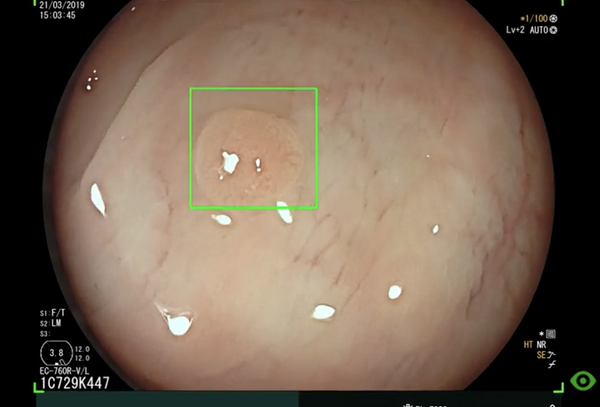
A comparison of the two groups found that polyp removal rates significantly increased among the physicians who used the AI system. Dr. Keswani says the results indicate that computer-aided colonoscopies could reduce future colon cancer diagnoses by up to 39%.
Investing in Patient Care
Based partially on this research, Northwestern Medicine purchased GI Genius devices to equip every endoscopy suite in every hospital and outpatient location where colonoscopies are performed.
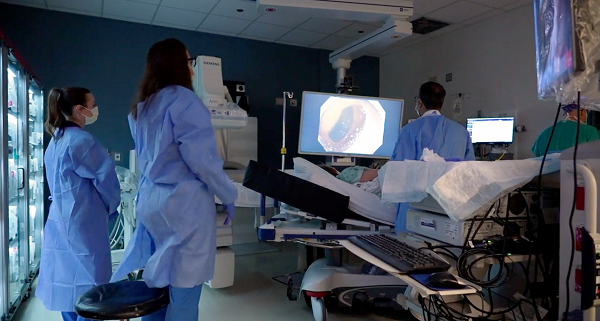
“This investment shows we’re committed to using and developing artificial intelligence and machine learning to improve the way we care for patients,” says John E. Pandolfino, MD, chief of Gastroenterology and Hepatology at Northwestern Medicine. “It’s incredibly gratifying to know this technology will be available to patients in every Northwestern Medicine location where colonoscopies are performed.”
Dr. Pandolfino leads the Center for Artificial Intelligence and Mathematics in Gastroenterology at Northwestern Medicine. It is a first-of-its kind program that was developed in collaboration with engineers at the McCormick School of Engineering at Northwestern University.
"Artificial intelligence and machine learning have the potential to vastly improve our ability to accurately predict, diagnose and treat our patients living with digestive diseases," says Dr. Pandolfino.




